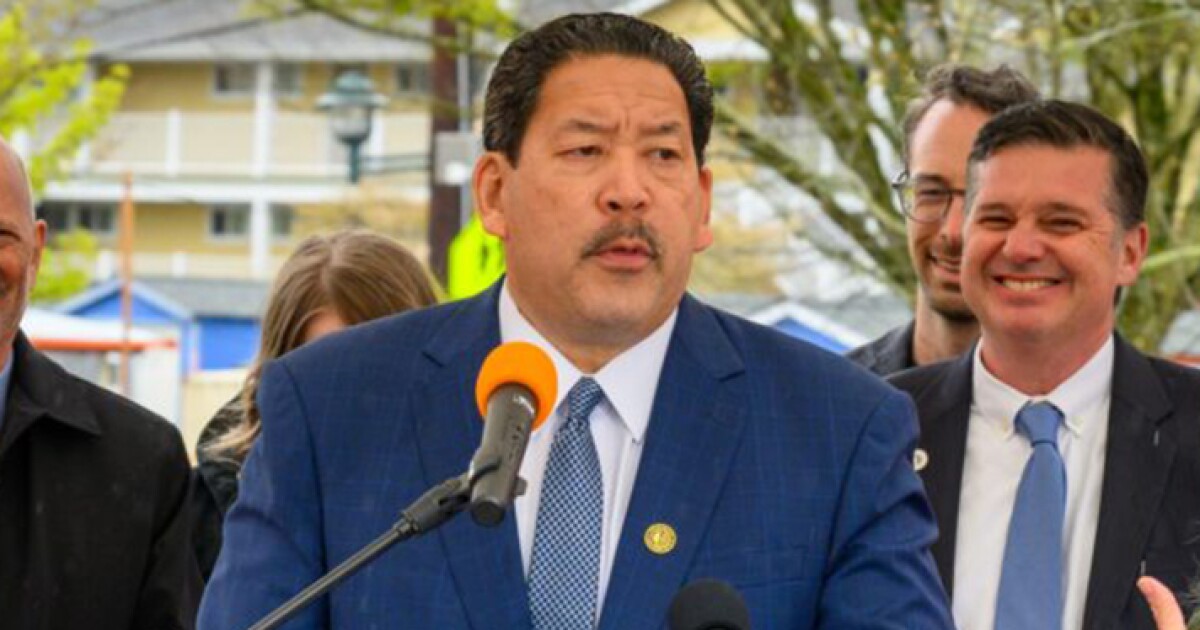Seattle mayor proposes record transportation levy
2 min read

Seattle Mayor Bruce Harrell proposed the city’s largest property tax historically: an eight-year, $1.35 billion levy to pay for bridge, street and sidewalk projects.
The
The current levy provides roughly 30% of the Seattle Department of Transportation’s budget, according to the mayor’s office.
Seattle Mayor’s Office
Harrell on Thursday unveiled the proposal that he says would connect neighborhoods to light-rail and make getting around Seattle safer by tackling needed infrastructure projects.
“Seattle residents want a transportation system that is safe, connected, and well-maintained. This levy proposal will deliver more funding to get us there,” Harrell said.
Residents have until April 26 to comment on the proposal. After that, a final version would be presented to the City Council, which would need to approve it before it would go to voters in November.
“I appreciate Mayor Harrell’s work on this framework for the levy and see we are in alignment on many key issues,” said Seattle Council Member Rob Saka, who chairs the transportation committee. “The Council has a lot of hard work ahead of it to review and improve upon this proposal. I am ready and eager to lead that collaborative effort.”
Under the expiring Levy to Move Seattle, the median assessed value Seattle homeowner pays about $24 per month. This levy proposal would increase the monthly cost by $12 per month for an $866,000 home, the median assessment.
The Seattle Department of Transportation manages $40 billion in transportation assets including 3,900 miles of streets, 135 bridges, 2,300 miles of sidewalk and 600 retaining and seawalls.
“This major program of investments will produce a safer, better-connected and more reliable transportation system for all,” said Greg Spotts, director of the Seattle Department of Transportation.







